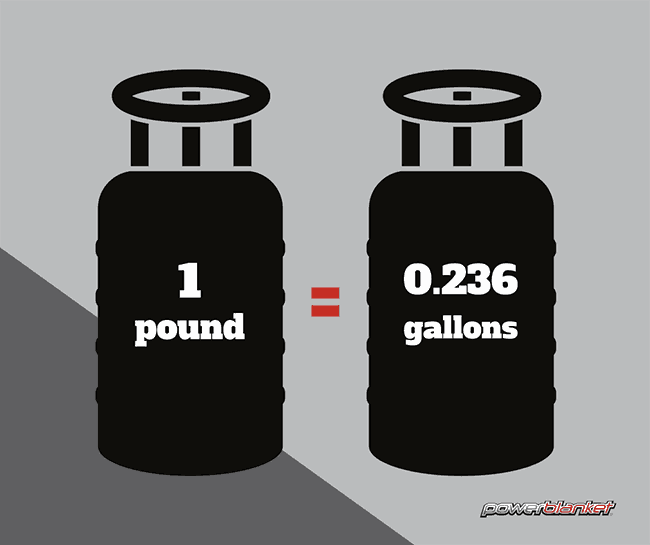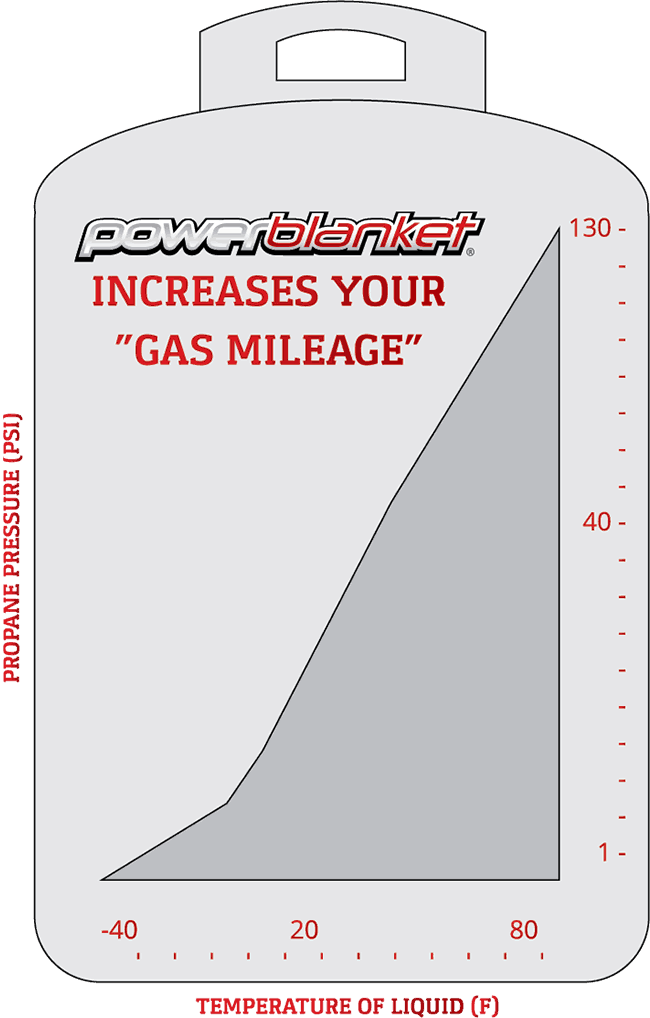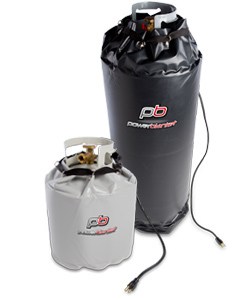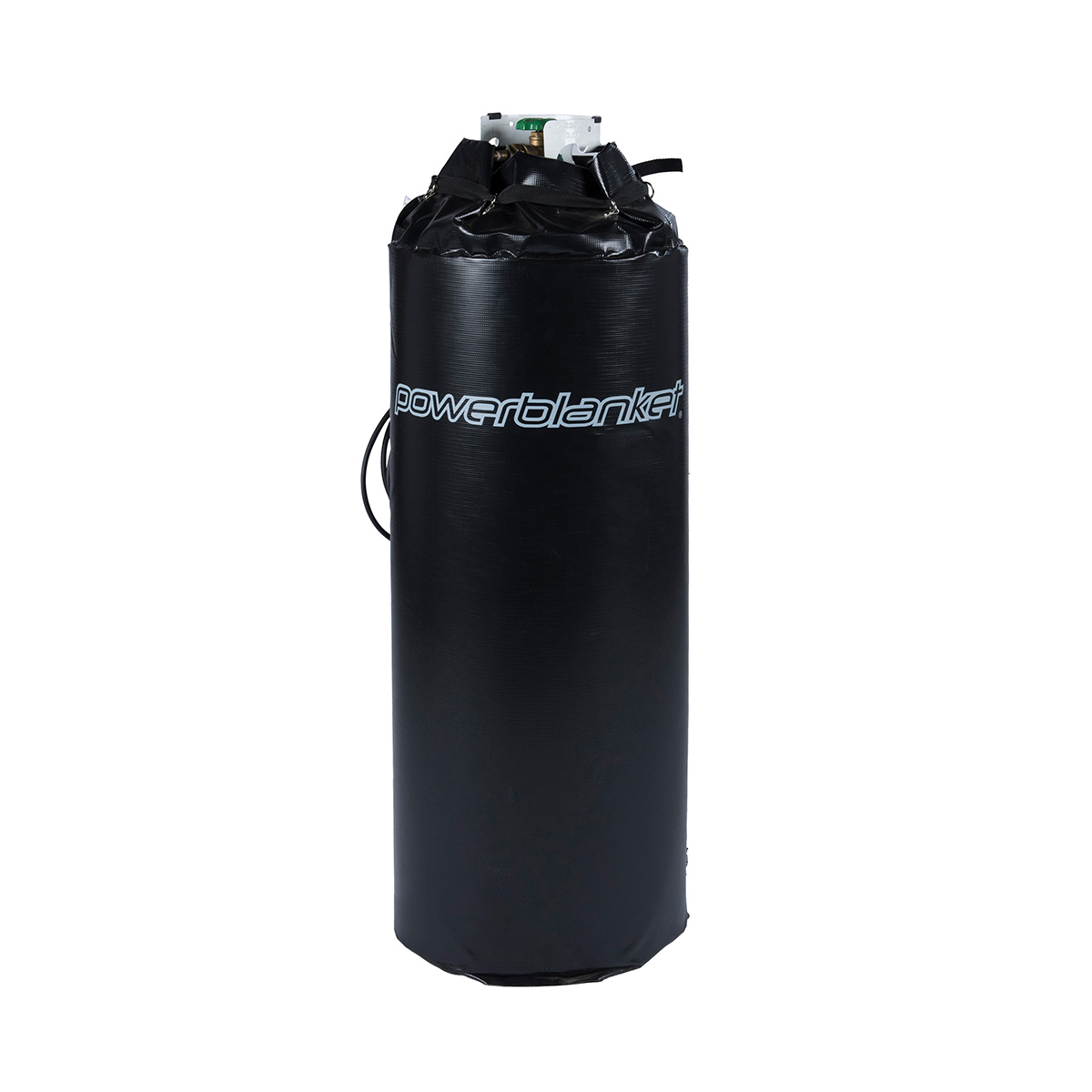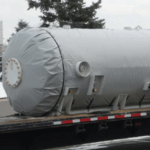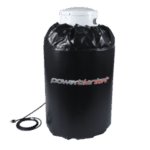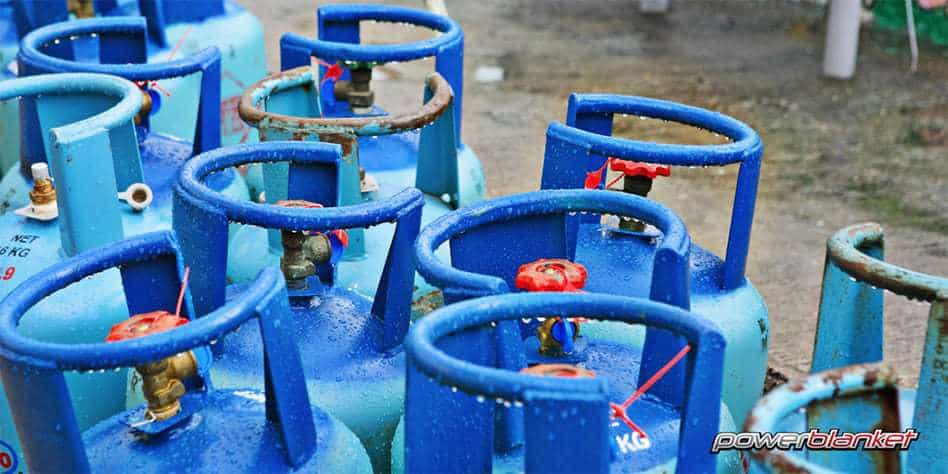
It probably goes without saying, but a 100 lb. propane tank is designed to hold 100 pounds of propane. Straight-forward, right? Well, not quite… So, how many gallons of propane are there in a 100 pound tank?
Because propane is stored and delivered as a liquid, it can be helpful to know what this looks like in terms of gallons. While there’s a fairly simple answer, there are a few different factors that can affect how many gallons are actually in a 100 lb. tank.
Propane is a beneficial fuel source for many applications, but keeping your tank at the optimal temperature can be a hassle. Our propane tank heaters are the perfect solution to maintain proper tank pressure and get the most out of every gallon. They are safety-certified and specially designed to wrap your tank in a uniform barrier of heat. This increases efficiency, reduces costs from frequent refills, and ensures you have propane ready when you need it.
The Simple Answer
To put it simply, 0.236 gallons = 1 pound of propane.
This is true when the propane tank is at a temperature of 60 degrees Fahrenheit.
So, 0.236 gallons x 100 pounds = 23.6 gallons.
A 100 lb. tank holds 23.6 gallons and weighs 170 lbs. when full.
Other Factors
As mentioned, there are additional factors that can affect the overall amount of usable propane within the tank. These include water capacity and tank temperature. Let’s take a closer look at each of these to see how they affect your propane tank supply.
Water Capacity
Each gas cylinder will have a water capacity number stamped on the collar and will look something like “WC 240.” This is the total mass of liquid – stated in pounds – that a cylinder could hold if filled entirely with water.
However, when filled with propane, gas cylinders can only be filled up to 42% of the water capacity. This is to accommodate for the fluctuations in tank pressure as temperatures change.
For this example, 240 (water capacity) x 0.42 (max. capacity) = 100.8 lb.
So our tank can actually hold a maximum of 100.8 lb when filled.
As mentioned above, we know that each lb. propane is 0.236 gallons.
This means that 0.236 gallons x 100.8 pounds = 23.789 gallon propane.
Again, this doesn’t make a huge difference, but it can still be a factor to consider when deciding what size of tank to use.
How Temperature Affects Tank Pressure
Propane does not sit unaffected within propane tanks. The optimal ambient temperature (which was assumed in the example above) is 60 degrees Fahrenheit. At this temperature, a tank that has been filled would produce a reading of about 40% on a tank gauge.
As temperatures rise, the tank gauge reading will go up. It’s still the same weight of propane in the tank – the molecules have just become more spread out.
The reverse happens when temperatures drop, so don’t be surprised when that reading goes down. This is not because there is less usable propane in the tank – the propane has just become more dense or compact, and the volume has decreased. The colder the temperature, the more the levels will change.
The lower pressure can cause tanks to stop working properly. Keeping tank pressure up may require more frequent refills; even when there is still “usable” propane in the tank, the volume is not high enough and additional propane must be added to bring tank pressure back up.
How Can I Store My Propane At the Right Temperature?
Constantly making a trip to get a tank refill can be costly and frustrating. Luckily, there is another way to keep your tank working nicely with plenty of propane at the ready when you are – Propane Tank Heaters.
Propane tank heaters effortlessly transfer heat to the tank, raising the BTU (British Thermal Energy) of the propane. In simple terms, this heat energy works by transferring heat from one object (the tank heater) to another (the tank) – increasing the movement of its molecules and keeping it at optimal working temperature.
A well-made heater will save you the trouble of making time-consuming, not to mention expensive, refills by raising your tank temperature and, consequently, your overall tank pressure. This type of heater is a safety-certified electric blanket that wraps around the entire surface of your tank, no matter what size tank it is. It’s absolutely the “no-hassle” approach to temperature regulation, allowing you to use every gallon of propane within the tank.
If you frequently use propane during cold weather months, a tank heater is definitely worth checking out!
Choose Powerblanket Propane Tank Heaters
Here at Powerblanket, we create the best propane tank heating solutions on the market. Here are some of the benefits you can expect from one of our carefully-made tank heaters.
- Maintains Optimal Ambient Temperature
- Wide Variety of Tank Sizes to Choose From
- Provides Uniform Barrier of Heat Across The Entire Tank
- Reduces Costs By Optimizing Temperatures and Increasing Tank Efficiency
- Limits Amount of Necessary Refills
- Creates Safe Storage Conditions, Without Risk of Explosions
- Easily Installed and Low Maintenance
- Safety Certified by UL/CSA/CE
Here at Powerblanket, our expert team specializes in heating all gas delivery systems. For your propane-heating needs, there simply is no better choice than Powerblanket.
Give us a call at 801.506.0198 with any questions you have. We’re always ready to help.
Keep your propane tanks at the perfect pressure with Powerblanket.


